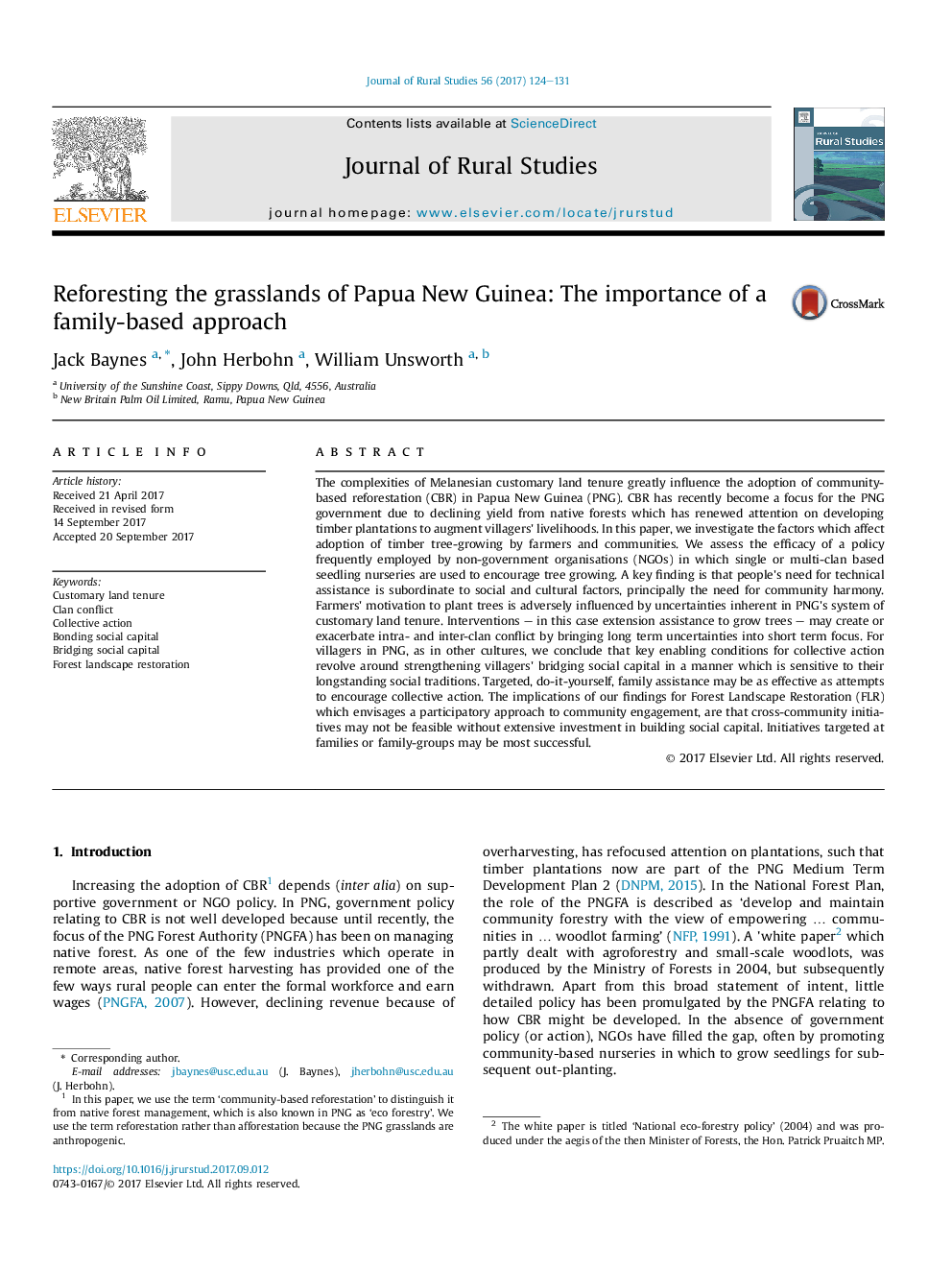| کد مقاله | کد نشریه | سال انتشار | مقاله انگلیسی | نسخه تمام متن |
|---|---|---|---|---|
| 4759927 | 1421775 | 2017 | 8 صفحه PDF | دانلود رایگان |
عنوان انگلیسی مقاله ISI
Reforesting the grasslands of Papua New Guinea: The importance of a family-based approach
ترجمه فارسی عنوان
جنگلداری مجدد گیاهان پاپوآ گینه نو: اهمیت یک رویکرد مبتنی بر خانواده
دانلود مقاله + سفارش ترجمه
دانلود مقاله ISI انگلیسی
رایگان برای ایرانیان
کلمات کلیدی
زمین متعارف زمین، درگیری های قبیله ای اقدام جمعی، سرمایه گذاری اجتماعی، پل ارتباطی سرمایه اجتماعی، بازسازی چشم انداز جنگل،
موضوعات مرتبط
علوم زیستی و بیوفناوری
علوم کشاورزی و بیولوژیک
جنگلداری
چکیده انگلیسی
The complexities of Melanesian customary land tenure greatly influence the adoption of community-based reforestation (CBR) in Papua New Guinea (PNG). CBR has recently become a focus for the PNG government due to declining yield from native forests which has renewed attention on developing timber plantations to augment villagers' livelihoods. In this paper, we investigate the factors which affect adoption of timber tree-growing by farmers and communities. We assess the efficacy of a policy frequently employed by non-government organisations (NGOs) in which single or multi-clan based seedling nurseries are used to encourage tree growing. A key finding is that people's need for technical assistance is subordinate to social and cultural factors, principally the need for community harmony. Farmers' motivation to plant trees is adversely influenced by uncertainties inherent in PNG's system of customary land tenure. Interventions - in this case extension assistance to grow trees - may create or exacerbate intra- and inter-clan conflict by bringing long term uncertainties into short term focus. For villagers in PNG, as in other cultures, we conclude that key enabling conditions for collective action revolve around strengthening villagers' bridging social capital in a manner which is sensitive to their longstanding social traditions. Targeted, do-it-yourself, family assistance may be as effective as attempts to encourage collective action. The implications of our findings for Forest Landscape Restoration (FLR) which envisages a participatory approach to community engagement, are that cross-community initiatives may not be feasible without extensive investment in building social capital. Initiatives targeted at families or family-groups may be most successful.
ناشر
Database: Elsevier - ScienceDirect (ساینس دایرکت)
Journal: Journal of Rural Studies - Volume 56, November 2017, Pages 124-131
Journal: Journal of Rural Studies - Volume 56, November 2017, Pages 124-131
نویسندگان
Jack Baynes, John Herbohn, William Unsworth,
